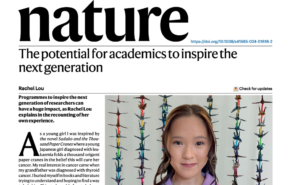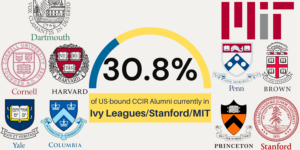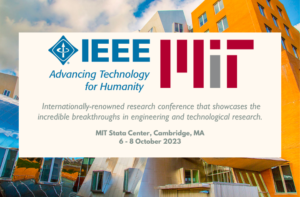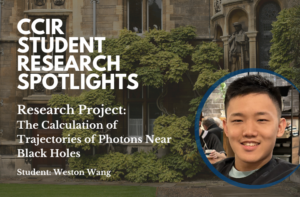Virtual research opportunities for high school students are programs that provide hands-on experience and research projects in various STEM fields, such as mathematics, computer science, computational biology, physics, neuroscience, and engineering. These programs are designed to deepen students’ understanding of STEM and help them develop the skills needed to succeed in their academic and professional careers.
Participating in these programs can also help high school students expand their knowledge and skills in their areas of interest and work on exciting, unsolved problems with established researchers from top-tier universities.
Virtual research opportunities are especially useful for high school students who are unable to attend in-person programs due to distance, cost, or other factors. They offer a flexible and accessible way to gain valuable experience and knowledge from the comfort of their own homes. In this article, we will discuss five free virtual research opportunities available for high school students.
1. MIT Primes
MIT PRIMES is a free, year-long after-school program that provides research projects and guided reading to high school students in the areas of mathematics, computer science, and computational biology. The program is designed for students living within driving distance from Boston, and it offers four sections: PRIMES, PRIMES-USA, Menezes Challenge PRIMES Circle, and Yulia’s Dream.
PRIMES is a research-focused program in which participants work with MIT researchers to solve exciting, unsolved problems. PRIMES-USA is a distance mentoring math research section for high school juniors and sophomores from across the United States. Menezes Challenge PRIMES Circle is a math enrichment section for underrepresented groups living within commuting distance from Boston. Yulia’s Dream is a math enrichment and research program for exceptional high school students from Ukraine.
In addition to these sections, PRIMES runs two collaborative initiatives: MathROOTS, a two-week summer program for high-potential high school students from underrepresented backgrounds or underserved communities, and CrowdMath, a year-long online collaborative research project open to all high school and college students worldwide.
Finally, PRIMES STEP is a year-long math enrichment program for middle school students from Greater Boston.
Overall, MIT PRIMES aims to provide challenging and engaging opportunities for students with a passion for mathematics and science. Through research projects, guided reading, and collaborative initiatives, PRIMES seeks to foster the intellectual growth and development of high school and middle school students, and to inspire them to pursue their interests in these fields.
MIT PRIMES is a prestigious year-long after-school program that offers research projects and guided reading to high school students interested in mathematics, computer science, and computational biology.
The admissions for the 2023 cycle are closed, and the admission decisions are made by February 1. However, for the 2024 cycle, new problem sets will be posted on October 1, 2023, and applicants will have until November 30, 2023, to solve the relevant problem set(s).
To apply for MIT PRIMES, you must be a high school student (or a home-schooled student of high school age) living in the Greater Boston area, able to come to MIT weekly from February to May.
To apply, you need to fill out a questionnaire, ask for two or three letters of recommendation, and submit your solutions of the PRIMES problem set. Applicants to the Math section must solve the Math problem set (at least 70%), and applicants to the Computer Science and Computational Biology sections must solve the Computer Science problem set (100%) and the General part of the Math problem set (at least 70%). Admission decisions are based on all components of your application, and there is no application fee.
MIT PRIMES suggests a list of recommended readings as a preparation for entering the program and as a background for further research. By participating in MIT PRIMES, students can gain hands-on experience working on exciting, unsolved problems with MIT researchers and expand their knowledge and skills in these areas.
2. SAMS
The Summer Academy for Math and Science (SAMS) is a program that provides opportunities for underrepresented high school students to explore STEM fields. The program is designed to deepen students’ understanding of STEM through traditional classroom instruction, hands-on projects, and sustained engagement with faculty and staff mentors.
SAMS Scholars are taught by renowned faculty and staff who are deeply committed to their success. They also have the opportunity to collaborate and develop meaningful relationships with peers from across the country. Through SAMS and other outreach initiatives, the program aims to develop a diverse and supportive community of STEM Scholars interested in attending top-tier universities.
The program consists of two parts: Part one is a virtual jumpstart that will occur prior to the start of the residential program. This will focus on skill-building that will be needed for the in-person program. Part two is a 5-week in-person Pre-College program where students will move into the residence halls and attend full days of courses and meetings. The academic portion of the program will conclude with a symposium, and students will move out of the residence halls at the end of the program.
SAMS is a fully funded, merit-based program, and there is no cost for scholars to participate. To be eligible for the program, students must be at least 16 years old, a U.S. citizen or permanent resident, and a junior in high school at the time of application submission. Scholars are expected to participate fully for the duration of the program and cannot participate in any other programs if selected for SAMS.

3. University of Illinois – High School Summer Research Program
The High School Summer STEM research program invites current 9th-11th graders from Illinois, Indiana, Kentucky, Missouri, Iowa, or Wisconsin to apply for an authentic six-week STEMM research experience at a world-class research university. Participants will be matched with another student, and in some cases, a teacher from their school.
The program aims to provide hands-on experience in various STEMM fields, including cancer immunology, neuroscience, artificial intelligence, physics, quantum mechanics, bioengineering, and electrical engineering.
Participants will work with established researchers in engineering, computer science, and medicine and attend weekly seminars on topics such as college admission processes and support available, communicating scientifically, and preparing research posters etc. Students will also interact with faculty, post-doctoral researchers, graduate students, undergraduate students, and local high school teachers.
Participants will showcase their research with a research poster and symposium at the end of the program. They should plan for 30-35 hours per week of research and professional development time, with a majority of activities taking place on the University of Illinois campus.
The program covers some transportation/parking expenses, meals, and a monetary award.
High school teachers play an essential role in the program, with some research projects requiring a teacher to be a co-researcher, and others having a teacher mentor who checks in weekly with the students to discuss their research progress and address any issues or challenges.
Teachers and students do not need to come from the same school, and interested individuals should apply regardless of whether they can recruit others from their school to apply.
The program also invites research faculty, staff, and graduate student researchers affiliated with The Grainger College of Engineering and the Carle Illinois College of Medicine to propose a high school research project for consideration. The proposals will be mentored by POETS YS, GEnYuS, or SpHERES research teams, which will guide two high school juniors/seniors from limited understanding to completion of a related project of their own and poster presentation explaining their research.
In summary, the High School Summer STEM research program provides high school students with an opportunity to engage in authentic STEMM research and develop professional and college-ready skills. Participants work with established researchers, attend weekly seminars, and showcase their research at the end of the program.
The program aims to provide hands-on experience and build confidence in students as scientists and engineers.
4. Simons Summer Research Program
The Simons Summer Research Program is a highly selective program that offers high school students the opportunity to conduct hands-on research with Stony Brook faculty mentors. Founded in 1984, the program attracts applicants from all over the country, with Simons Fellows being paired with a faculty mentor, joining a research group or team, and taking responsibility for a project. Students are encouraged to demonstrate independence, creativity, and an aptitude for hands-on work, with a strong interest in science. The program takes place during the summer before the student’s senior year of high school, with students participating in the program from June 26, 2023 to August 11, 2023.
In addition to working on their research project, Simons Fellows attend weekly faculty research talks, special workshops, tours, and events. At the closing poster symposium, students present their research project through a written research abstract and a research poster. Participants receive a stipend award.
The Simons Summer Research Program is supported by the Simons Foundation and is open to US citizens and/or permanent residents who are at least 16 years of age by the start of the program. The program is an opportunity for high school students interested in science to learn valuable techniques, experience life at a major research university, and develop independence, creativity, and an aptitude for hands-on work. The program aims to give students a glimpse into the world of scientific research and inspire them to pursue careers in science.
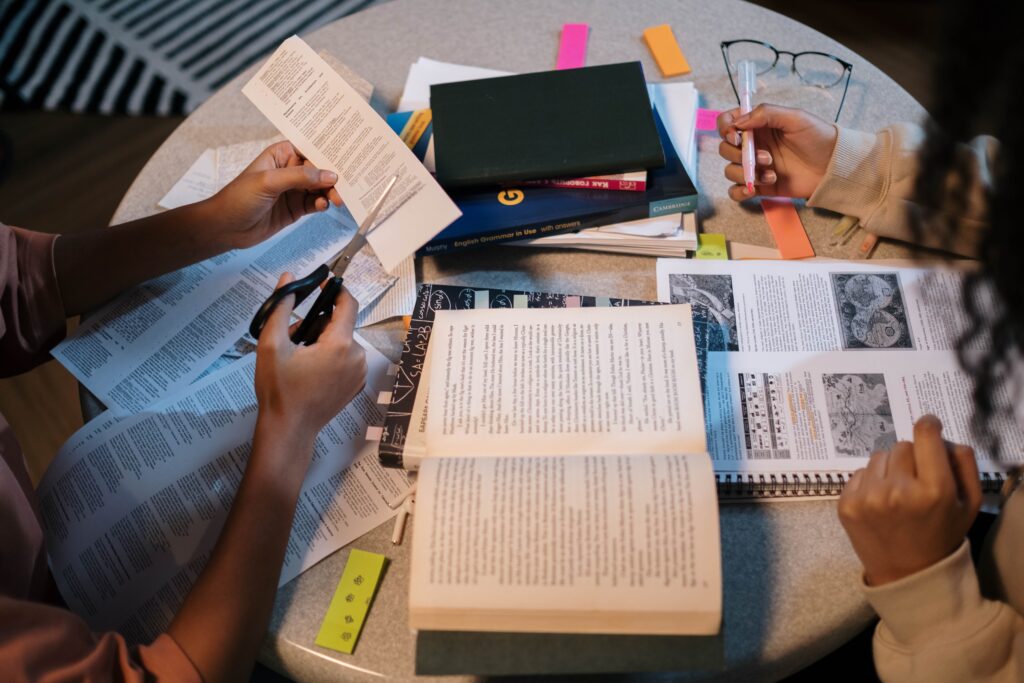
5. EnergyMag Internship
EnergyMag is offering virtual internships for high school and college students interested in increasing the share of renewable energy in the world and gaining work experience in the energy storage industry.
The internships aim to provide students with research and analysis skills that will be valuable for their future professional lives. The virtual internship allows students to complete their internship hours virtually, providing flexibility to fit the experience into their busy personal and professional lives. Additionally, virtual interns enjoy the unique rewards of learning from experts regardless of their geographic location and strengthening their information and computer skills.
The internships are strong resume boosters for employers, graduate college programs, and undergraduate programs.
EnergyMag offers half-time and quarter-time virtual internships. Half-time internships are available in the summer for two to eight weeks, with interns expected to work approximately 20 hours per week. Quarter-time internships are available all year round for one to nine months, with interns expected to work approximately eight hours per week. The internships are unpaid, and interns work from home while maintaining daily electronic contact with EnergyMag and their mentor.
Depending on the student’s graduation date, academic record, and experience, interns will be asked to research and analyze a specific company, technology, or market. The intern will be mentored, briefed, supervised, and assisted in producing a draft analysis report. If the report is publishable, EnergyMag will give the intern an internship Letter of Accomplishment.
The application process for college and high school internships requires an application explaining why EnergyMag should grant an internship, a Skype or voice interview, and a writing sample upon request. College interns are also required to provide their academic record, and high school interns should have at least one honors science or English class with a GPA above 3.25.
EnergyMag believes that internships provide the opportunity for students to learn on-the-job skills that are not easy to acquire at school but will make a big difference in their future professional success, such as learning how to research a scientific or business issue, approach strangers with positions of authority in a friendly and professional manner, analyze and synthesize information from multiple sources, and communicate professionally in writing.
Conclusion
The blog highlights five virtual research opportunities for high school students, providing hands-on experience and research projects in various STEM fields such as mathematics, computer science, physics, neuroscience, and engineering. These virtual research opportunities aim to provide students with a deeper understanding of STEM and develop the necessary skills to succeed in academic and professional careers. Furthermore, these programs help expand knowledge and work on unsolved problems with established researchers from top-tier universities.
Virtual research opportunities for high school students provide a flexible and accessible way to gain valuable experience and knowledge from the comfort of their own homes. These programs aim to foster the intellectual growth and development of high school and middle school students, and inspire them to pursue their interests in these fields.
CCIR connects students to professors at universities and enables them to take classes with them and get publications which can help them get into better colleges. Learn how CCIR can help you live the life of your dreams and get your career on the right path. Apply today!


